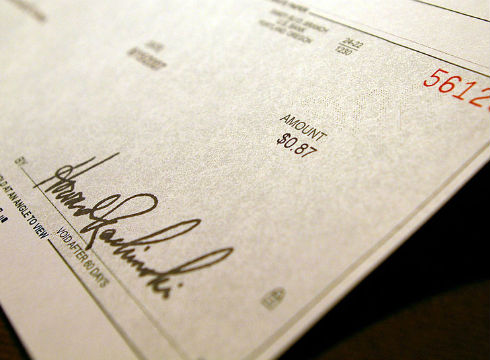Academics Develop Electronic Chequebook

Cheque payments could receive a new lease of life if banks adopt digital alternatives
An electronic chequebook system has been developed by university researchers, which could safeguard the future of the payment format.
Academics from York, Newcastle and Northumbria universities are due to present their research to the Computer Supported Co-operative Work conference in Seattle to see if any banks might be interested in the technology.
Digitally signed, sealed,delivered
Banks and retailers have been keen to see cheques phased out due to the processing and transport costs involved, but plans to stop their use by 2019 were halted following pressure from consumers and MPs who prefer their ease of use. This new system eliminates many of these costs and still works like a traditional chequebook.
Customers write the cheque using a digitial pen that has a tiny camera which records every stroke made against millions of tiny dots on the cheque’s surface. The user also fills in the stub for their own records and the pen sends the details wirelessly when they return home.
Cheques and pens only work from the customer’s own secure computer hub, which means they are useless to thieves. Digital pens currently cost £80, but this cost is expected to fall in the near future.
“The beauty is that it is a safe and cheap electronic transaction for banks, but it’s a physical paper-based transaction for the customer,” said Dr John Vines, who said the electronic cheques were developed in partnership with a group of people over 80-years old.
An alternative method is being pioneered by a US bank which has updated its iPhone app to allow account holders to photograph both sides of a cheque and deposit it straight into an account. It has also piloted a similar scheme to allow customers to digitally deposit cheques using a home scanner.
The electronic methods overcome some of the security issues with paper cheques. A group of fraudsters managed to counterfit £5.76 million worth in the year leading up to July 2010.
Despite these advances, near-field communication (NFC) are being touted as the substitute for cheques, allowing users to make payments via their smartphones.
